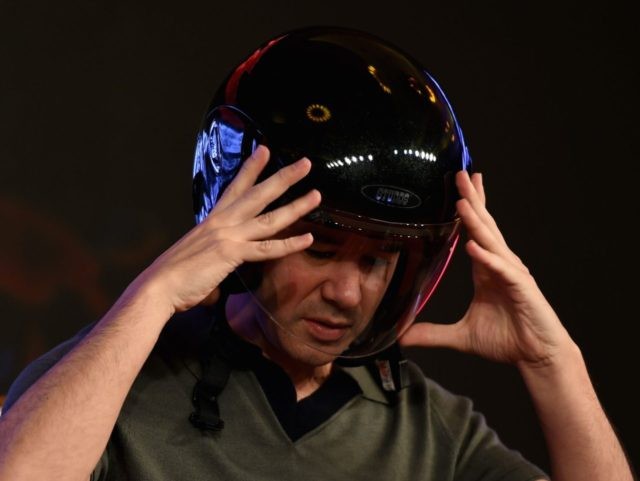Uber’s CEO Travis Kalanick was dumped after a 47-point report by former Obama Attorney General Eric Holder found the company to be a management disaster, but he could make a triumphant return, like Apple’s once-fired CEO Steve Jobs.
Breitbart News reported that the investigation by Eric Holder’s Law Firm, Covington & Burling LLP, was the Death Star that caused Uber’s Chief Executive Office, Chief Operating Officer, Chief Financial Officer, Chief Business Officer, Chief Marketing Officer, Head of Engineering and General Counsel to leave involuntarily.
According to Recode, Holder investigated 215 Uber incidents, which led to 20 terminations, 31 employees in training or counseling, 7 written warnings, 100 cases with no action taken, and 57 cases still open.
As Kalanick was resigning in disgrace on June 20, Eric Holder was announcing that he plans to lead the legal resistance to Donald Trump’s agenda, and is exploring a run against the President in 2020. Holder told Yahoo News: “There’s a justified perception that I’m close to President Obama. So, I want to use whatever skills I have, whatever notoriety I have, to be effective in opposing things that are, at the end of the day, just bad for the country.”
Uber’s investors claim that they wanted a mass culture change to protect the company’s $62.5 billion valuation. Audra Diers-Lawson, a professor of public relations strategy at Leeds Beckett University, told the liberal Atlantic that Uber needed fundamental change. She stated that Uber’s CEO represented “a reputational cancer that could have been cut away — but that the cancer has infected the rest of the body.”
Travis Kalanick was runner-up to Germany’s Chancellor Angela Merkel as Time Magazine’s Person of the Year in 2015. Time was impressed by Kalanick’s business zeal, but expressed concern with violent protests by taxi drivers against Uber’s expansion. The Brookings Institute featured a column entitled “Is Uber a threat to democracy?”. The liberal publication demanded new social and regulatory policies as part of a new social contract.
Harvard Business School held a one-day forum featuring top corporate executives to analyze “Uber’s Keys to Success.” The consensus was that CEO Travis Kalanick’s willingness to violate corporate norms and flaunt laws was the key for Uber’s access to $8.81 billion in 14 rounds of venture capital to fund its rise to international dominance.
The first cultural change by Uber’s 14-member management committee, following Kalanick’s resignation, is that Uber will be lending its cash-free business model for the first time by implementing a driver tipping option in a cultural effort to improve relations with drivers and avoid sexual harassment complaints, according to the Verge. The committee also cut the amount of time from 5 to 2 minutes that a user may cancel an Uber pick-up before being charged a $5 penalty.
Although the cultural tweaks sound modest, they fundamentally change the business relationship Kalanick pioneered between Uber and its users. The company is now encouraging drivers to compete to service the best-tipping customers and communities. Kalanick strived to make the Uber experience consistent for all users.
Uber’s board’s highly visible dumping of Kalanick has similarities to Apple’s board’s dumping of Steve Jobs in 1985. According to Frank Rose’s book, West of Eden: The End of Innocence at Apple Computer, Apple’s board agreed that Jobs was a brilliant entrepreneur, but thought him too impulsive to run the business of a Fortune 500 firm.
His replacement, John Sculley, raised prices and licensed Apple’s technology. That initially saw higher profits. But the customer experience faded without Apple creating disruptive new products. On the verge of bankruptcy, Apple brought Jobs’s NeXT Computer 1997 and made him CEO again. Apple is now Forbes’ most valuable brand.
Travis Kalanick has an advantage over Steve Jobs, because he holds Uber super-voting shares that give him the right to appoint a new majority of Uber’s board, according to Wired. If Uber’s 14-member management committee fails to be entrepreneurial and Uber loses user competitiveness, Kalanick can come back as the company’s savior.

COMMENTS
Please let us know if you're having issues with commenting.